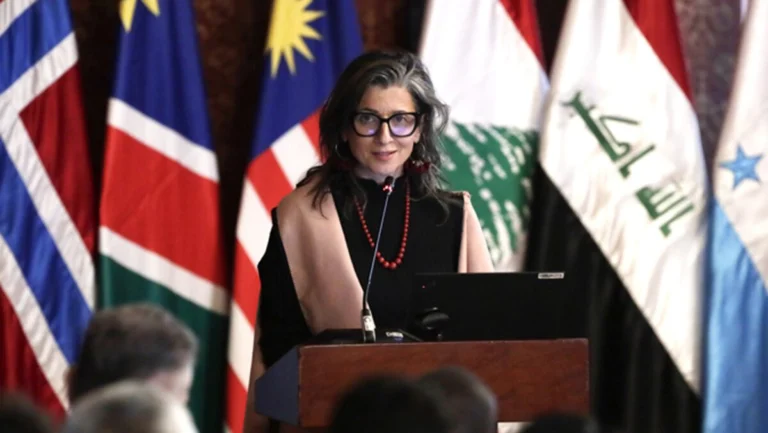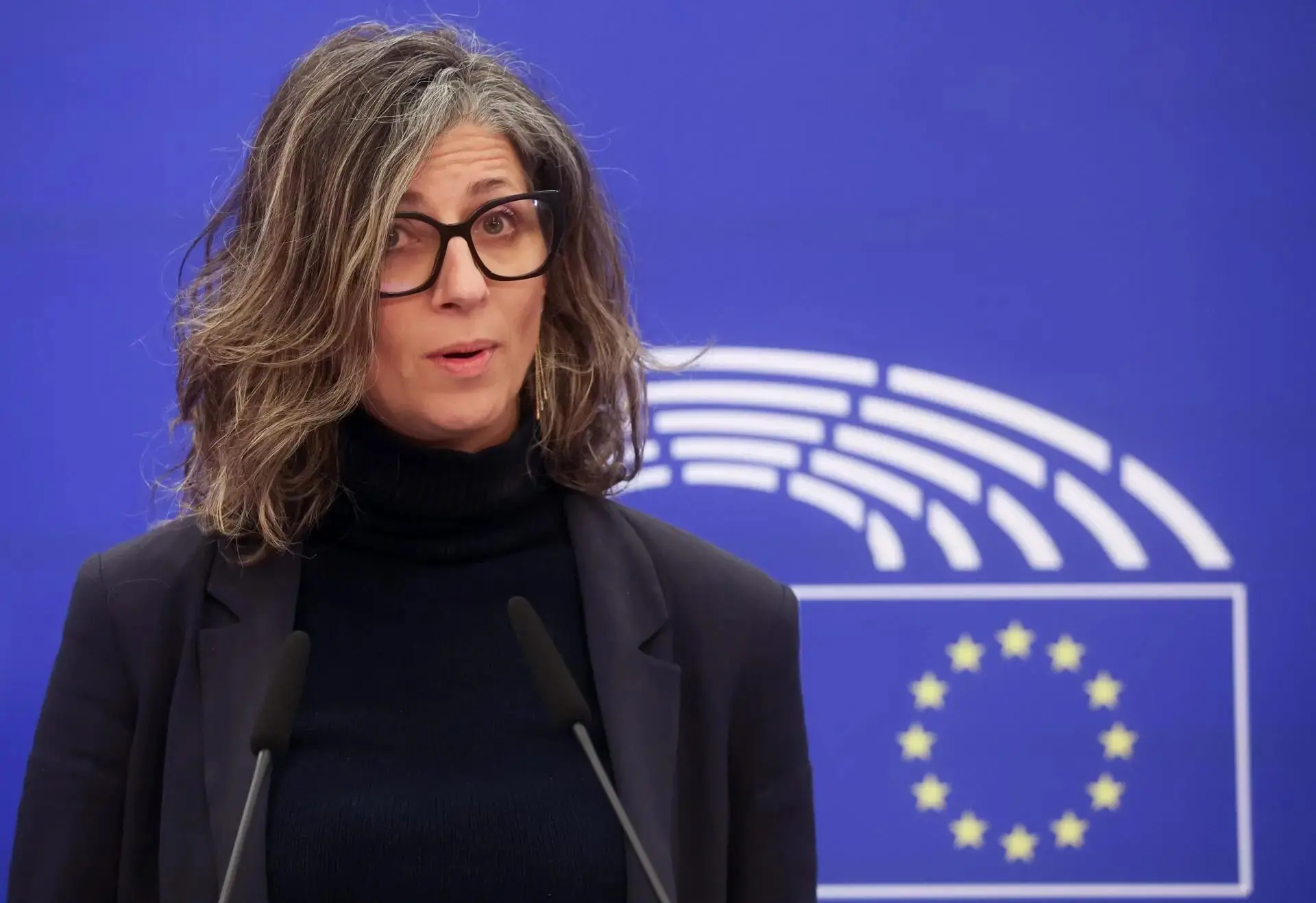Francesca Albanese Calls Hague Group’s Commitments a ‘Lifeline’ for Palestinians

Francesca Albanese, July 16, 2025. Bogota, Colombia. Photo: EFE
July 17, 2025 Hour: 9:05 am
The Hague Group agreed to block the supply or transfer of weapons, ammunition, and related military equipment to Israel.
On Wednesday, United Nations Special Rapporteur for Palestine Francesca Albanese described the commitments made by the Hague Group as a “lifeline” for Palestinians suffering from the devastation of war.
RELATED:
The Hague Group Raises Concrete Measures to Stop the Genocide in Gaza
“The six concrete measures agreed upon by twelve of you reflect the courage you’ve shown… These are not just measures; they are lifelines for people who are under relentless attack,” she said at the close of the ministerial summit of the Hague Group, held in Bogota.
The Hague Group was created in January by Bolivia, Colombia, Cuba, Honduras, Malaysia, Namibia, Senegal, and South Africa in response to the severe humanitarian crisis in the Gaza Strip.
With the exception of Honduras and South Africa, the other founding members signed the declaration. They were joined by the governments of Indonesia, Iraq, Libya, Nicaragua, Oman, and Saint Vincent and the Grenadines.
The text reads, “The Venezuelan Foreign Minister Yvan Gil met with Francesca Albanese, the UN Special Rapporteur on the Palestinian territories, to whom he acknowledged her struggle ‘defending the dignity of all humanity’.”
In the joint declaration, the Hague Group agreed to block the supply or transfer of weapons, ammunition, military fuel, related military equipment, and dual-use items to Israel, aiming to ensure that their industries “do not contribute to the means that enable or facilitate genocide, war crimes, crimes against humanity, and other violations of international law.”
The Hague Group members also pledged to prevent the transit, docking, or provision of services to any vessel within their territorial jurisdiction that is transporting weapons, ammunition, military fuel, related equipment, or dual-use items to Israel.
“The measures agreed upon are absolutely welcome, and all states must implement them. Commitments to arms embargoes must become urgent policies and then domestic legislation that is legally enforceable. The idea is to leave no room for those commitments to be circumvented,” Albanese stated.
The Hague Group had already pledged in January to enforce the arrest warrants issued by the International Criminal Court against Israeli Prime Minister Benjamin Netanyahu for war crimes, among other charges.
Representatives from more than 30 countries attended the ministerial meeting, including Brazil, Bolivia, Chile, China, Cuba, Egypt, Spain, Honduras, Ireland, Mexico, Nicaragua, Uruguay, and Venezuela.
“I know many in this room… hesitate to stand up to the world’s most powerful forces… that logic must end and be defeated by the unity of people in struggle. By doing so, you will find solidarity — and in solidarity, you will find strength,” Albanese concluded.
teleSUR/ JF
Source: EFE





